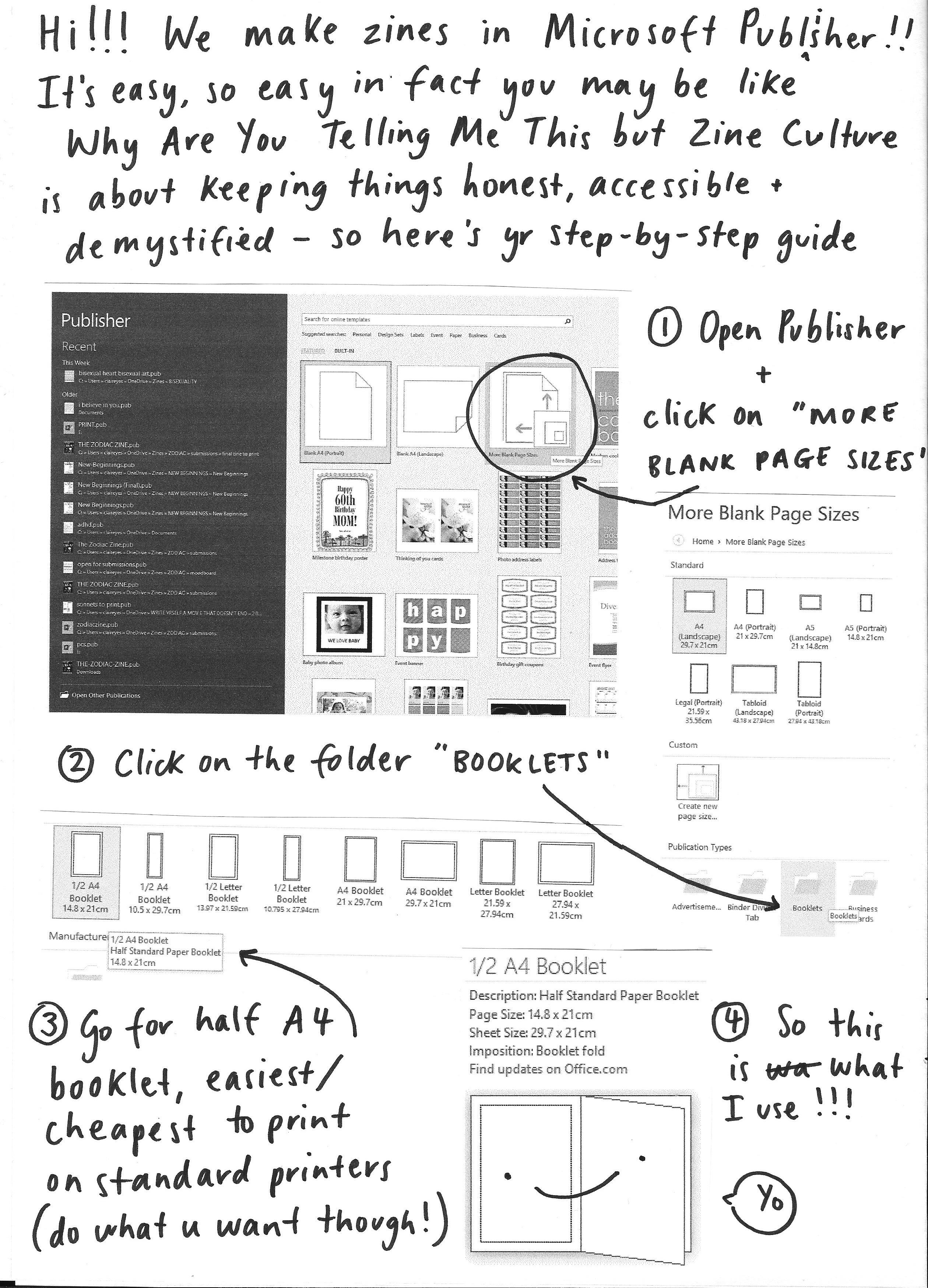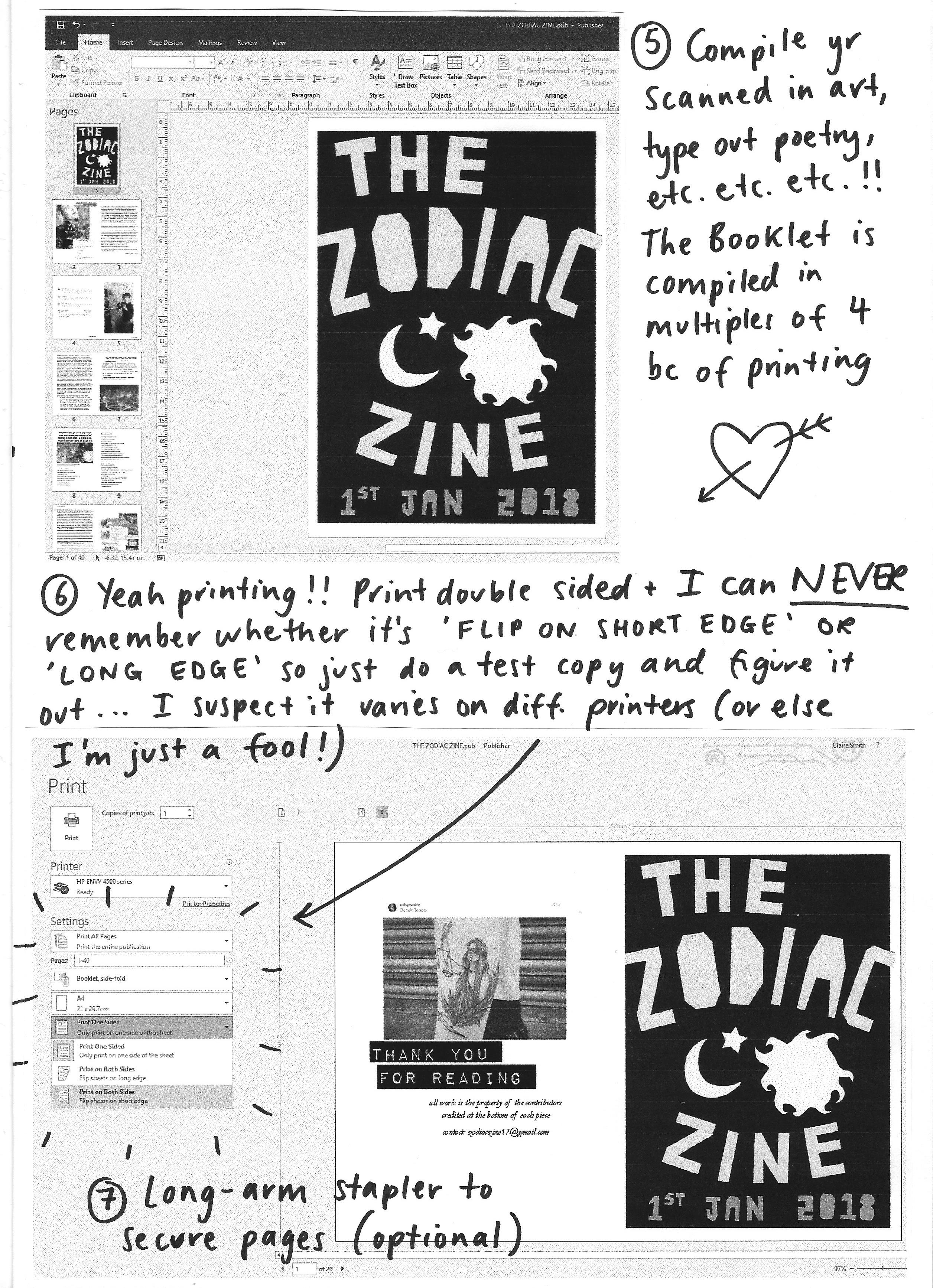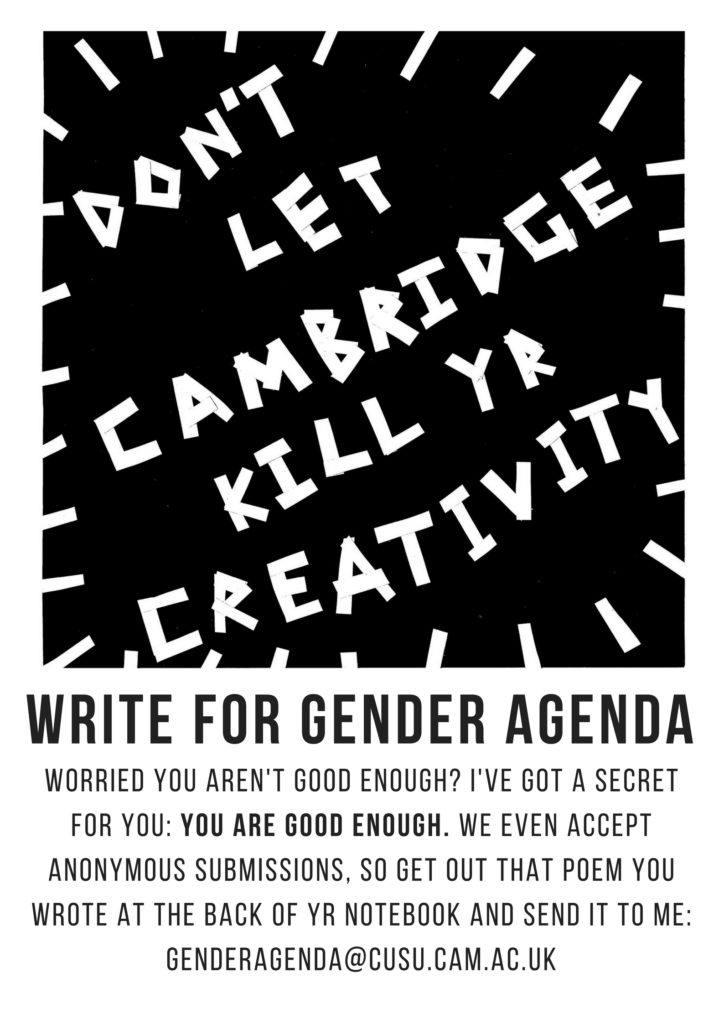By Claire Sosienski Smith

I didn’t speak until I was three years old. This rate of development isn’t incredibly slow, but delayed enough to cause alarm in paediatricians, so my first few memories of hospitals were going for hearing tests. My mum, however, was not alarmed. “How can the kid have hearing problems, when she can hear a crisp packet open from the next room and come running?” was her reasoning. I was a quiet, hungry child. Quieter than a lot of the other family members around me, but definitely part of the family: distracted, erratic, emotional, exhausting. I overheard my mum talking on the phone to my psychiatrist that all the women in my family are like this, but I am the only one who has gone to Cambridge, so this diagnosis of ADHD makes sense. To my mother, I make sense.
And my family make sense to me, and so have my state schools, particularly my primary school which catered for a lot of specific learning disorders at a time when government money was earmarked for its provision. ADHD diagnostic questionnaires don’t make so much sense to me. The person to waltz through an ADHD diagnosis is the type to bump into all other dancers on that floor: the stereotype of the young male child, disrupting their lessons, acting out at home. Have you ever heard of ADHD, inattentive type? I don’t really mind if you haven’t, because the wording of ADHD is outdated. “Attention deficit hyperactive disorder.” How can we avoid deficit models when discussing disability, if ADHD has ‘deficit’ in its name? ADHD is a difference in attention and processing of information. I find it to be an unpredictability of attention. I call myself erratic because ‘attention deficit’ doesn’t match up to when I can be hyper-focused, making links between unrelated topics. It’s an incredible state of mind. My attention is everywhere and, channelled properly, is a complete asset. It’s difficult when I’m in environment that doesn’t cater for ADHD.
I have a style of cognition that takes in a lot of information at once, and my manifestation of working type is ‘inattentive’, rather than hyperactive. This means that my mind will wander off to distraction and daydream to seem permanently spacey or lost in thought. The hyperactive type would typically manifest these symptoms in physical movement, such as rushed speech, a twitching leg, tapping fingers. Most ADHD-types are impulsive. We can call this risk-taking, which is a good thing, yet it can be demonised if you don’t have access to an outlet for this energy. ADHD is over-represented at universities. It is also over-represented in the prison system. People with ADHD have increased susceptibility to alcoholism and drug abuse, for self-medication or as a result of impulsive behaviour. I sympathise that the same impulses that fuel my academic obsessions spill into me being reckless with drink or drugs. People say that there are two types of times with ADHD: now, and not now. Of course I can drink seven pints. The consequences aren’t affecting me right now. I don’t conceptualise things in a linear way. It is all now: one big, bright and incredibly loud mass of information.
Sounds overwhelming? Let’s return to my primary school. I wasn’t the child disrupting class. I was finishing my work early, allowed to choose books from the shelves outside the classroom, I could sharpen all the pencils, I could be cutting out displays for the corridor. I would technically be leaving class a lot, which is something they ask about at ADHD screenings. But somewhere in my school life I became very timid about leaving class, speaking out of turn, seeking extra things to do. I think young girls and other marginalised people are more aware of boundaries: they feel the edges where they are not meant to be with more distinction, shrinking within these boundaries so they can breathe. I wouldn’t leave the classroom or draw too much attention to myself, because I didn’t want people to look at me. I internalised my distraction and restlessness as procrastination, a poor work ethic, an indicator that I was just a little bit crazy. All the women in my family seemed a bit strange, a bit too much, so I tried to be still and void-like.
Symptoms of ADHD must be present before the age of twelve to warrant a diagnosis. But we teach girls to not speak out of turn, to hide unfeminine behaviours, to work harder so no one can tell that you forgot a relative’s name because you were preoccupied with your thoughts. When you are raised female, you learn how to work harder to hide the unacceptable parts of yourself. Add into the mix the theory that, whilst it gets better for boys after twelve years old, ADHD gets worse for girls after puberty. We have a lost generation of girls with ADHD who do not know that their high-speed thoughts are signalling that they are different, and need to work with, rather than against, their brains. These narratives of women with ADHD are missing or invalidated.
I’m incredibly lucky. I had great, social ways of learning so that it was only coming to university that brought my differences in cognition to an impasse. I had a GP here who suggested I go to the Disability Resource Centre for a meeting about ADHD. My NHS waiting list took six months so I didn’t have provisions for exams, but I managed to get through them. The university wouldn’t pay for my diagnosis because the funding that makes this possible had been revoked under the current government. I was supported by my family and friends who would fill in the forms required for diagnosis, when various people in my life would question whether I had ADHD at all. You cannot be ‘too smart’ for a specific learning disorder, especially as these differences in learning and adaptive skills we gain as a result are often the origins of our academic success. People with specific learning ‘disorders’ think differently. It is essential to celebrate and create space for these differences.
I was diagnosed after my psychiatrist called up my mum to discuss her feedback about my childhood. She hadn’t scored me highly enough to qualify for ADHD under the requirements that certain symptoms must be present before puberty. My psychiatrist had told me in person that it seemed incredibly likely that I had ADHD, she just needed the forms to reflect this. Fortunately, she could prompt my mum into understanding that what she saw as good behaviour were examples of leaving the classroom, being distracted, and changing goals constantly, even if the language used in diagnostic questionnaires points towards a child who does not resemble me and uses the language of deficiency. We have imperfect diagnostic tools for ADHD and non-inclusive images of ADHD that leave a lot of people incorrectly diagnosed with anxiety or depression, or left completely undiagnosed.
I am grateful to have a diagnosis and supportive family and friends, whose input was essential to my diagnostic process. I am equally grateful that I was born with this cognitive difference. It’s time for centres of academic prestige such as Cambridge to start catering for brains that don’t work like ‘normal’ ones. Spoiler alert, this is every single brain. There is no such thing as a normal brain. The term ‘normal’ is a lazy and exclusive shorthand. Diagnosis helps people with specific learning disorders access the adjustments, support and (sometimes) the medication they need. I am not about to throw off the label I worked hard to be diagnosed with, but I refuse to see it as something shameful or an indicator of any deficiency.
These alternative forms of cognition are not disorders, and when the environments we are in actively include people who work differently, people with ADHD make sense and are able to access their unique abilities. I feel lucky that I have found a voice within an unwelcoming educational institution, finding pockets of resistance raising awareness that you do not have to change; it’s the traditions, attitudes and stereotypes around you that need radical and complete transformation. Let’s start with the diagnostic criteria, including who we recommend for and recognise are in need of assessment and support. To those who are currently slipping through the cracks: I hear you, even if it may look like I’m not listening – that’s just the way I work. ∎
You can get in touch with me at csosienskismith [at] gmail [dot] com if you want to discuss anything I have mentioned in this article. Your GP can recommend you to an ADHD specialist during a standard appointment. If you’re a university student, you can contact your Disability Resource Centre (or equivalent). Two great resources for women with ADHD are smartgirlswithadhd.com and kaleidoscopesociety.com.







 Hi everyone! It’s your editor here, offering constant affirmation and creative encouragement. Here’s a press release I just penned:
Hi everyone! It’s your editor here, offering constant affirmation and creative encouragement. Here’s a press release I just penned: